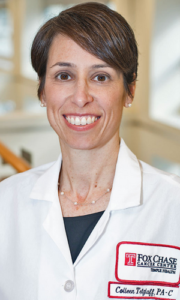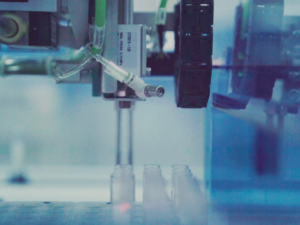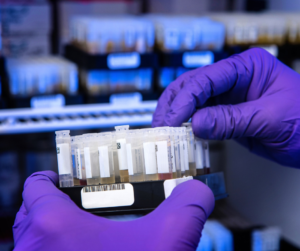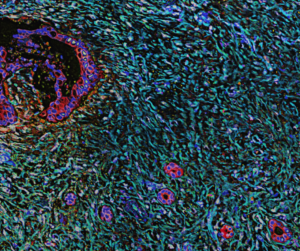In this interview with The Oncology Connection, Colleen Tetzlaff, PA-C, president of the Association of Physician Assistants in Oncology (APAO), discusses the many reasons professional association membership is important for advanced practice providers (APPs) in oncology.

Tetzlaff’s passion for oncology began as a nurse when she cared for postoperative cancer patients on an inpatient surgical floor followed by nursing in an outpatient surgical oncology clinic. She entered the Duke University Physician Assistant Program knowing that she wanted to make a difference in the lives of cancer patients and become a part of the dynamic and fast-growing oncology field..
Her PA career started at the UT MD Anderson Cancer Center in Houston where she focused on caring for patients with cancers of the lung and head and neck, and founded and directed the Thoracic Oncology Education Series, served as a clinical preceptor for PA students, and participated in the MD Anderson Ambassador program.
Tetzlaff relocated to Philadelphia in 2008 and works at the Fox Chase Cancer Center, where her clinical focus is on cancers of the genitourinary tract, including prostate, kidney, bladder, penile, adrenal, and testicular cancers.
Let’s start with the role of the APP in oncology. Why is the APP role so important in oncology?
As data by the American Society of Clinical Oncology has shown, there is and will continue to be an increasing shortage of oncologists, particularly in rural areas, in the coming years. As the number of persons with new cancer diagnoses and cancer survivors is also predicted to increase each year, there’s a need for APP oncology providers to help mitigate these shortages. With our training, APPs can really have a positive impact on the quality of cancer care we provide to these patients.
Why should APPs in oncology join a professional society?
There are many reasons why APPs in oncology should join a professional society. No. 1, itis a great place to network with other APPs in oncology. It’s also a great way to get educational content, and APAO, for example, has a lot of CME offerings, including a podcast series and our annual oncology symposium—we’re approaching our 26th Annual Oncology Symposium for the Healthcare Provider. In addition, professional societies often have committees that can facilitate future career endeavor opportunities. Joining an organization is also a great way to give back to the profession and impact the future of APPs in oncology. Fortunately, there are many medical organizations for APPs, so I encourage all APPs to get involved in the organization(s) that are the best fit for them.
How did you yourself get involved with APAO?
I was at a point in my career where I had been a seasoned oncology PA and I wanted to get involved in PA advocacy and contribute to the PA profession, particularly the oncology PA, beyond the institution where I worked. I was a member of APAO but not actively involved at the time. I decided APAO was an organization that could help me fulfill some of my career and personal goals, so I sought a position on the Board of Directors, was fortunately elected secretary at the time, and then moved on to president-elect and subsequently president.
Your association has various partnerships. How do these partnerships benefit your members?
We’ve had the partnership with Horizon CME for approximately 5 years. The partnership has been great because Horizon CME is really driving educational content and conferences specifically for oncology APPs. It’s provided a lot of offerings to our membership, not only enabling members to attend these conferences at a discount, but also to be involved as Planning Committee members or speakers at these conferences where the goal and the aim is to ensure APPs have the latest evidence-based strategies to optimize care and outcomes for patients with cancer.
For more information about the APAO, visit its website at https://www.apao.cc/ or contact us at admin@apao.cc







